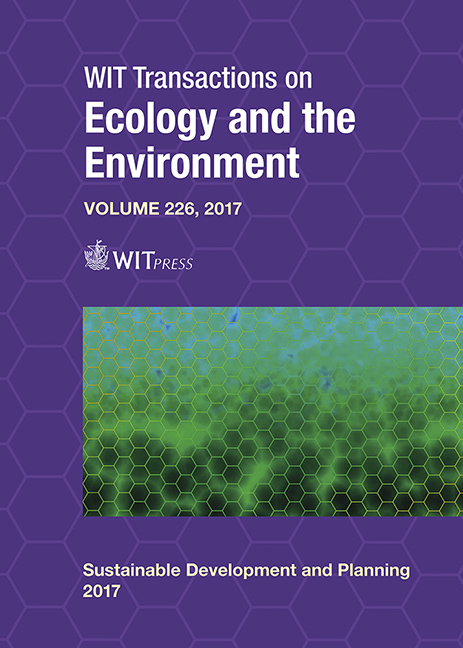A THEORETICAL ASSESSMENT OF THE ENVIRONMENTAL CHANGE FROM FLOODPLAIN RICE FIELDS TO IRRIGATED PERIMETERS: A CASE STUDY IN THE SAN FRANCISCO SERGIPANO LOW VALLEY IN THE NORTHEAST REGION OF BRAZIL
Price
Free (open access)
Transaction
Volume
226
Pages
8
Page Range
263 - 270
Published
2017
Size
287 kb
Paper DOI
10.2495/SDP170231
Copyright
WIT Press
Author(s)
GEDÁLIA C. SANTOS
Abstract
Four decades after the construction of the Sobradinho Dam, the consequences associated with the modification of the course of the San Francisco River can be verified through the environmental impacts on the use of the land: the cultivation of rice through flooding has changed to cultivation in “Irrigated Perimeters” in the San Francisco Sergipano Low Valley. Currently, the shortage of agricultural technicians, water distribution in the crops along with the increase in rat plagues, and fish farming in the irrigated perimeters are some of the consequences that have brought about economic losses for the farmers, in addition to the potential loss of traditional rice cultivation in the valley. This article is a case study which compares the characteristics between traditional and current models in the use of land and production systems, the advantages and disadvantages of the Irrigated Perimeters and the restoration strategies for this area. A tendency to return to traditional agricultural work both with and without the help of technology was discovered in this study. Future prospects for sustainable development depend on government action taken with respect to the San Francisco River.
Keywords
Betume, environmental change, floodplain, San Francisco Sergipano Low Valley, Propriá, Sobradinho





